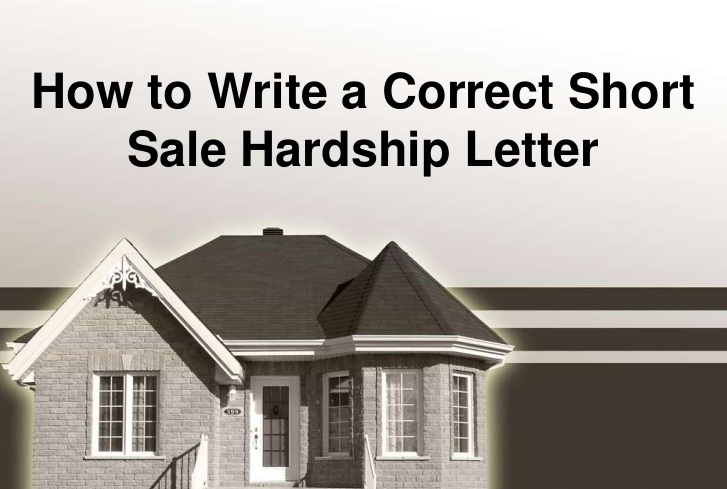5 Things to Avoid in a Hardship Letter
 Many think of the concept of hardship as something abstract; they define it as going through difficult phases. Though it commonly is a matter of suffering, it doesn’t mean that you have to be homeless to feel hardship. Even an NFL star that bought a home for $2 million and was later compelled to sell it for $1 million, due to financial difficulties, is in a hardship. While buying the home, his income had been $5 million and later when all hell ‘broke loose’ it dropped to $3 million. This dramatic fall in income forced him to sell his house. In other words, the NFL quarterback lost almost 40% of his purchasing power – which is also his hardship.
Many think of the concept of hardship as something abstract; they define it as going through difficult phases. Though it commonly is a matter of suffering, it doesn’t mean that you have to be homeless to feel hardship. Even an NFL star that bought a home for $2 million and was later compelled to sell it for $1 million, due to financial difficulties, is in a hardship. While buying the home, his income had been $5 million and later when all hell ‘broke loose’ it dropped to $3 million. This dramatic fall in income forced him to sell his house. In other words, the NFL quarterback lost almost 40% of his purchasing power – which is also his hardship.
There are different types of hardships that a lender usually considers. Also, they don’t need to happen to you personally. Instead of you yourself, it might be someone closer to you, who suffered a hardship.
Conditions to be considered as a hardship
- Job transfer (involuntary or voluntary)
- Military service
- Medical emergencies
- Divorce or other marital difficulties
- Decreased income (pay cut, new job, furloughs, loss of job)
- Death of an earner in the family
- Unexpected maintenance or repair costs
- Excessive debt and increased expenses
- Unemployment of a family member
- Incarceration
- Exotic mortgage terms
During a short sale it is normal to experience a fluctuation in emotion. However, letting your emotions loose will only decrease the chance of your getting your short sale letter approved. Below is a list of five things that you should never include in your hardship letter.
1. Do not try to show a ray of hope for the future.
The primary reason you are asking for a short sale is because you can’t afford a mortgage anymore. If there is any indication of temporary hardship, the lender may not approve the short sale. So, there is no reason to mention that your future conditions may improve.
Today lenders have to deal with too many hardship letters that they are ready to consider only the ones which seem legit. Thus, hardships that are not likely to improve have the highest chance of getting approval for short sale.
2. Do not point out that the hardship is a result of questionable activities.
A lender knows only business, so it will by-no-means fall for your emotional entrapments. Thus, telling about reasons like drug problem, alcohol abuse, or incarceration is of no use. There are many people who are looking for a short sale for more heartbreaking reasons than yours. The lender wants to approve someone who has been responsible in paying mortgage but could not continue to do so because of unavoidable circumstances, like loss of job, or death of a family member.
3. Do not talk about funds that you may get access to.
Mentioning your potential of getting hold of additional funds can jeopardize it all for you. Maybe you believe that that would show a clear picture of your enduring condition to the lender. However in reality, it will only build on a positive prospect, and will discourage the lender to approve a short sale.
Do not even theoretically talk about any extra money that you can manage.
4. Too many words will kill it.
While writing a letter of hardship, try to be accurate and appropriate. Keep your letter short and up to the point. Write about the cause of your hardship and what you did to overcome it. Besides, explain why a short sale is the only way left for you, in addition to a foreclosure.
A hardship letter should not be more than one page in length.
5. A generic template is no good; be unique.
While applying to college we all had to go through that rigorous task of writing those formidable college essays. The purpose of those essays was to prove how you stand out from the crowd and, therefore, deserve an entry.
The hardship letter is no different from those college essays. In addition to forming grammatically accurate sentences, you should give the lender a valid reason, explaining your unique situation. A generic template from the internet has the least chance of standing out. In this age of technological advancement, sending a handwritten letter would be a much better idea.